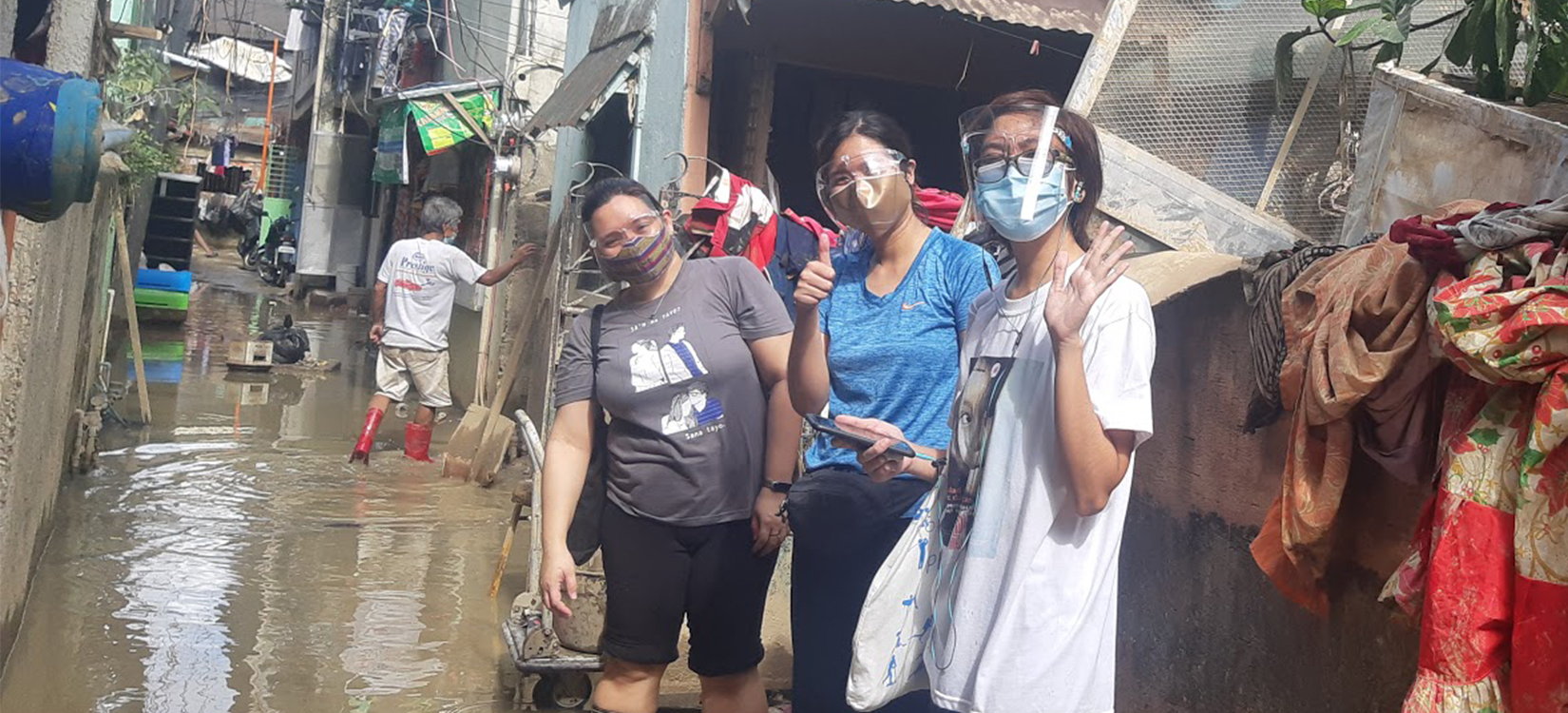Founding of SWAN Philippines
This concept note presents the rationale for founding SWAN Philippines. SWAN Philippines is a movement of progressive social workers committed to upholding social justice and fighting structural oppression.
Introduction
In the Philippines, social work as a discipline evolved within a highly unequal society founded on nearly 400 years of colonization, where inequality was and is a given part of life. As such, it developed within a social and political environment where individualist understandings of social problems and social welfare have preponderant influence.
This ideological orientation informs Philippine mainstream social work. This orientation led to the formation of a welfare system that is heavily reliant on private/non-government sector initiatives. Public sector initiatives are highly residualist in orientation. Social welfare programs are devolved, with limited national and local government budget for social welfare, resulting in inadequate, fragmented social welfare system (welfare institutions, social services do not measure to the mandated social welfare provisions); overworked but underpaid social workers and other human service workers, many of whom are contractual/MOA workers; and social welfare contexts that are strongly influenced by leaving them vulnerable to partisan politics.
The various professional social work organizations have limited advocacy functions, thereby creating a vacuum in terms of social workers’ visibility vis-à-vis social issues and even in the advancement of social workers’ rights and interests.
The Social Work Action Network (SWAN) Philippines is an organization of progressive social workers; social service practitioners and service users; social work educators; and social work students.
I. What We Stand For
We are united by our concern that mainstream social work practice embedded in state welfare programs and institutions, has only one answer to the suffering and problems of the people, namely, control and repression according to a top-down mono-mandate of help as control (Bernasconi, 2016).
With neoliberalism exercising hegemony, it has brought the “logic of the market” into the sphere of public social services and transformed these services into commodities; and that the complexity of social work practice has been reduced to simplistic answers and short-term solutions that focus on minimalist service provision, specialization, and fragmented services that address only surface and thus decontextualized issues in the lives of service users (Preston, et. al., 2014). We are also concerned that neoliberalism has brought adverse impact on the lives of the marginalized including the poor middle strata of the society and it gives low priority to health and education.
“While recognizing that social work is one of the mechanisms through which the State controls the behaviors of poor families, we believe nevertheless that social work is a valuable activity which can help people address the problems and difficulties in their lives.” Many of these difficulties are rooted in the inequalities, exploitation, and oppression inherent of being a neo-colony and exacerbated by neoliberalism. Good social work necessarily involves confronting the structural and public causes of so many private ills.
II. Our Mission
- To create new pathways for alternative social work education and practice; and
- To influence social policy discourse through education, advocacy and partnership development.
III. Aims and Objectives
- To promote models of social work practice that are rooted in concrete analysis of local, national and global socio-economic, political and cultural realities and their interplay, framed by human rights, social justice and social transformation, and emphasize both individual relationship- based and collective practice;
- To expose the ill-effects of neoliberalism in charting, defining social service services, and undermining social justice and human rights as the ideological moorings of social work;
- To bring together practitioners, educators, students, social service providers and service users through regular education and advocacy initiatives towards strengthening the critical voice in social work practice, education and social policy discourse; and
- To collaborate with existing social work, social welfare and service user organizations, including the members of the ASEAN Social Work Consortium-Philippines, Junior Association of Social Work Students in the Philippines (JASWP), and other professional organizations wherever possible, to campaign jointly around specific issues.
IV. Membership
Membership to SWAN Philippines shall be open to social work and social care students, academics, social service providers and users, and to anyone working in the field of social work and social care who supports the aims of SWAN Philippines, as outlined in Section II above, and who pays an annual membership fee to be agreed upon at the national conference.
V. Structure and Organization
SWAN Philippines is a democratic, membership-controlled organization, which aims to support and promote both local and national initiatives, in line with SWAN Philippines’ aims as outlined in Section II above. In principle, the organizational structure and processes shall be consistent with the democratic, egalitarian, and participatory character of SWAN Philippines.
VI. Conference
The national conference is the sovereign body of SWAN Philippines, where policies are debated and agreed upon, and where elections take place.
SWAN Philippines’ national conference will be held every two years. A national steering committee of nine people will be elected during the conference and will be accountable to the conference.
The conference shall elect the following officers:
- National Convenor. She/he is also the education officer of the organization.
- Deputy Convenor. She/he is also the campaign officer of the organization.
- Treasurer. She/he will lead in fund mobilization and accounting.
- Auditor. She/he is in charge of control functions over finances.
- Regional conferences will each elect their respective steering committee of seven people. The body will elect their own regional convenor, deputy regional convenor, regional treasurer, and regional auditor.
VII. Affiliation
SWAN Philippines is part of SWAN’s international network having chapters in United Kingdom, Ireland, Greece, Canada, Denmark, and Hungary. The international network maintains very good links with groups in the US, Hong Kong, Japan, New Zealand, Germany, and Hungary.
Our 2020-2021 Goal
- To establish a network of progressive social work educators and practitioners that will provide voice and presence on issues affecting the profession;
- To produce policy papers, statements, and advocacy materials;
- To train a corps of activists and trainors; and
- To publish a resource book on progressive social work practice modules.

